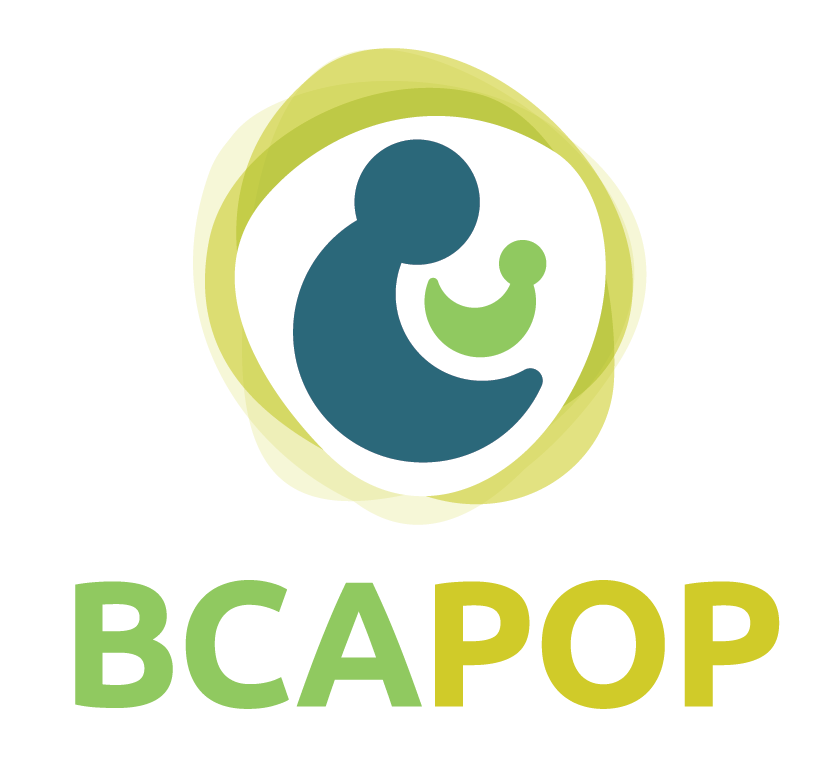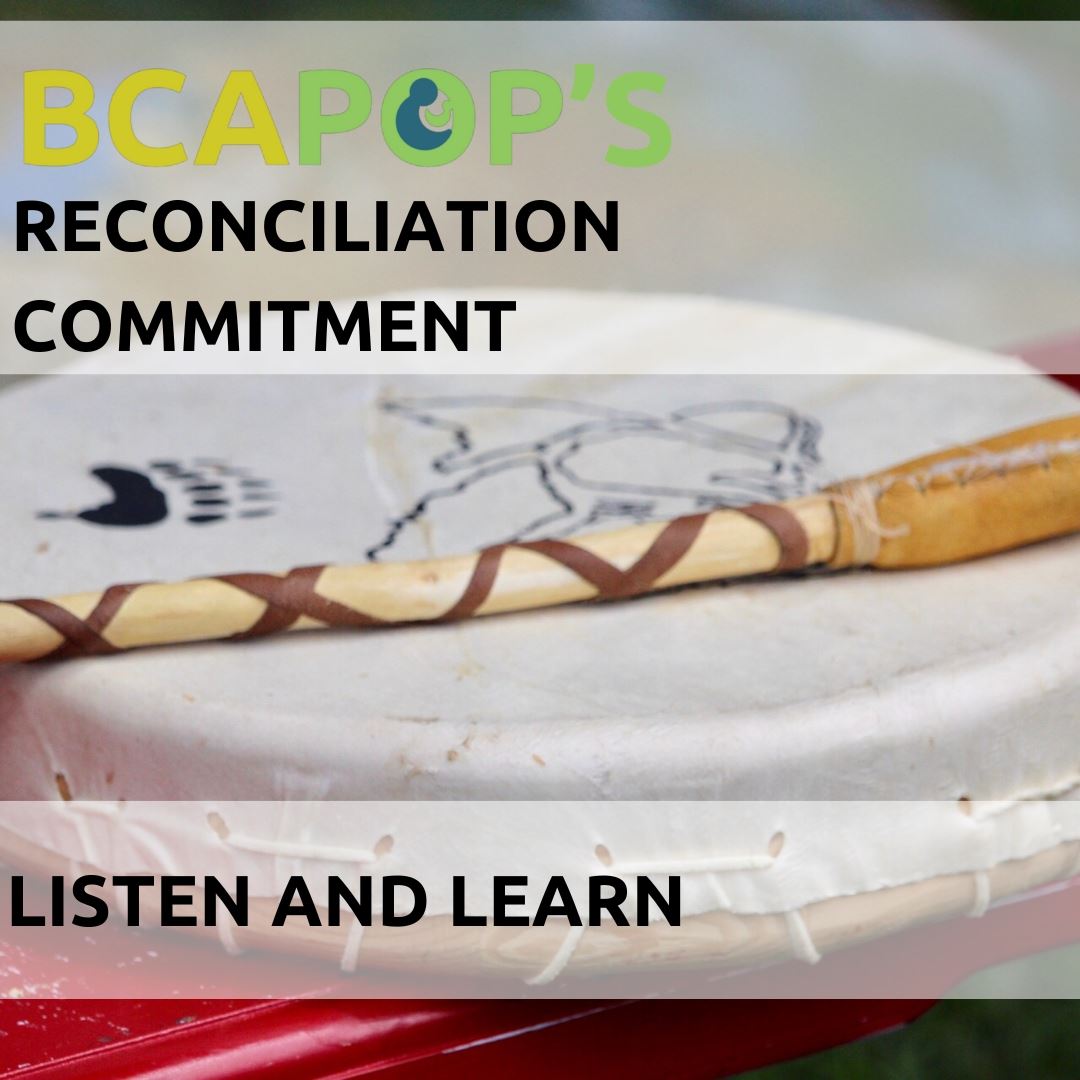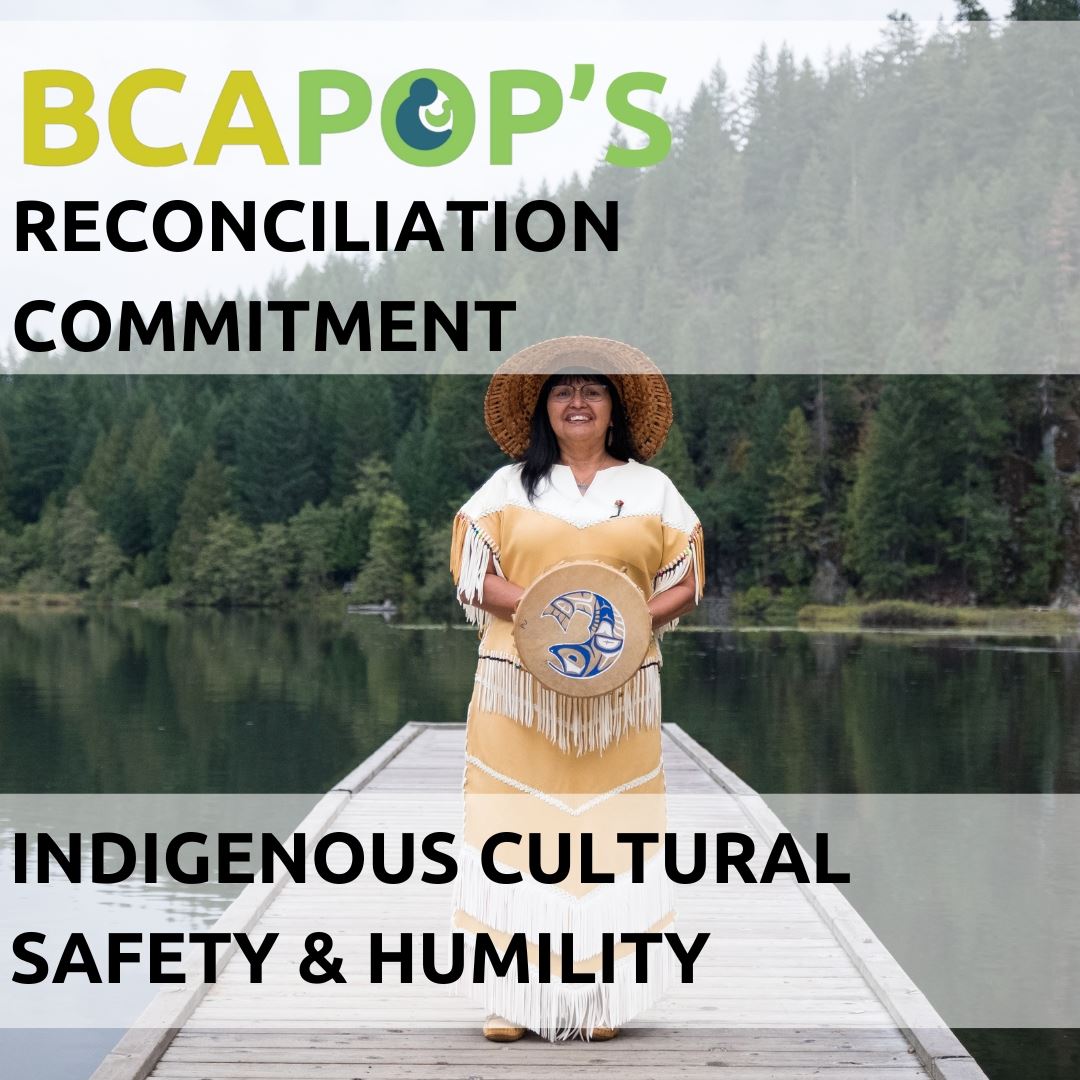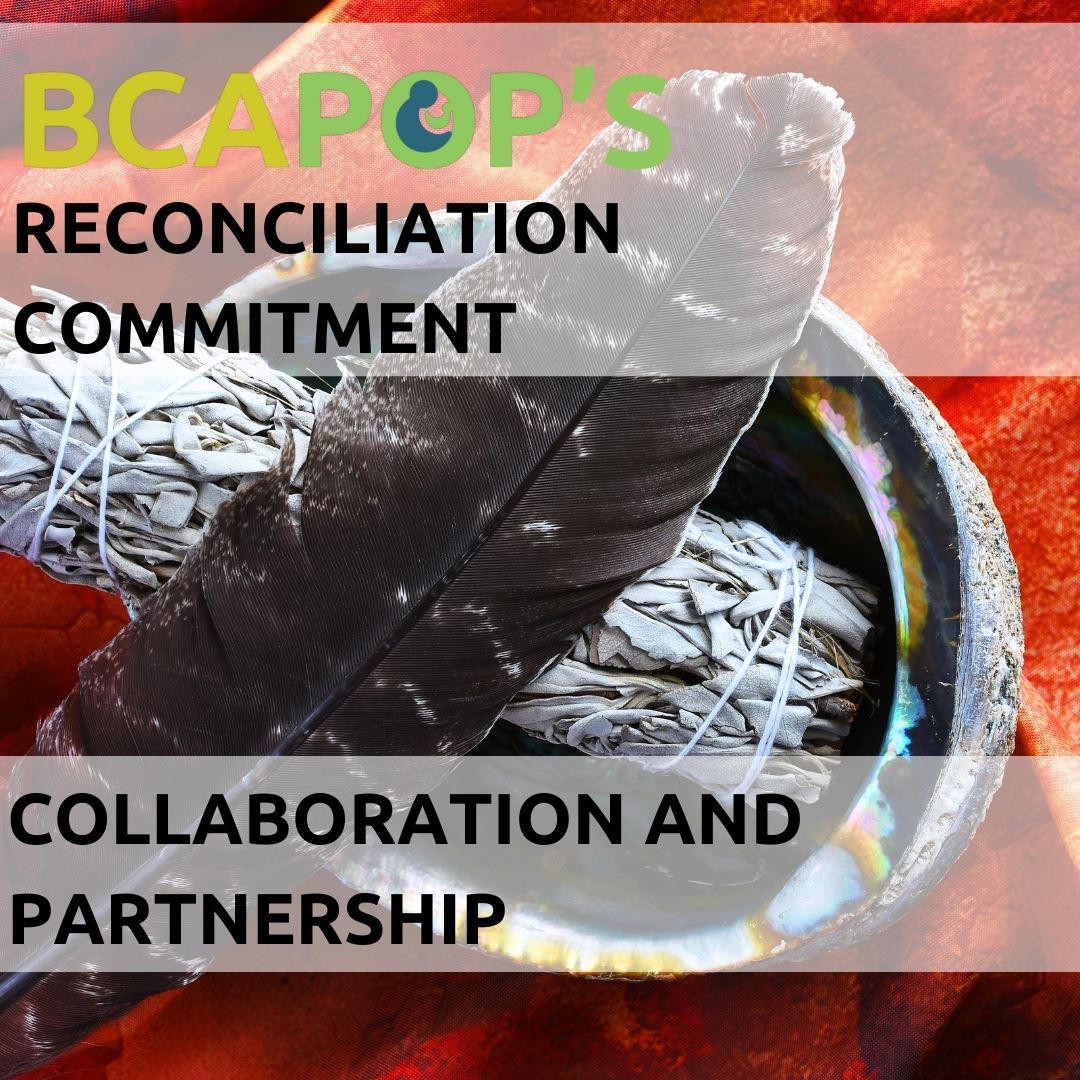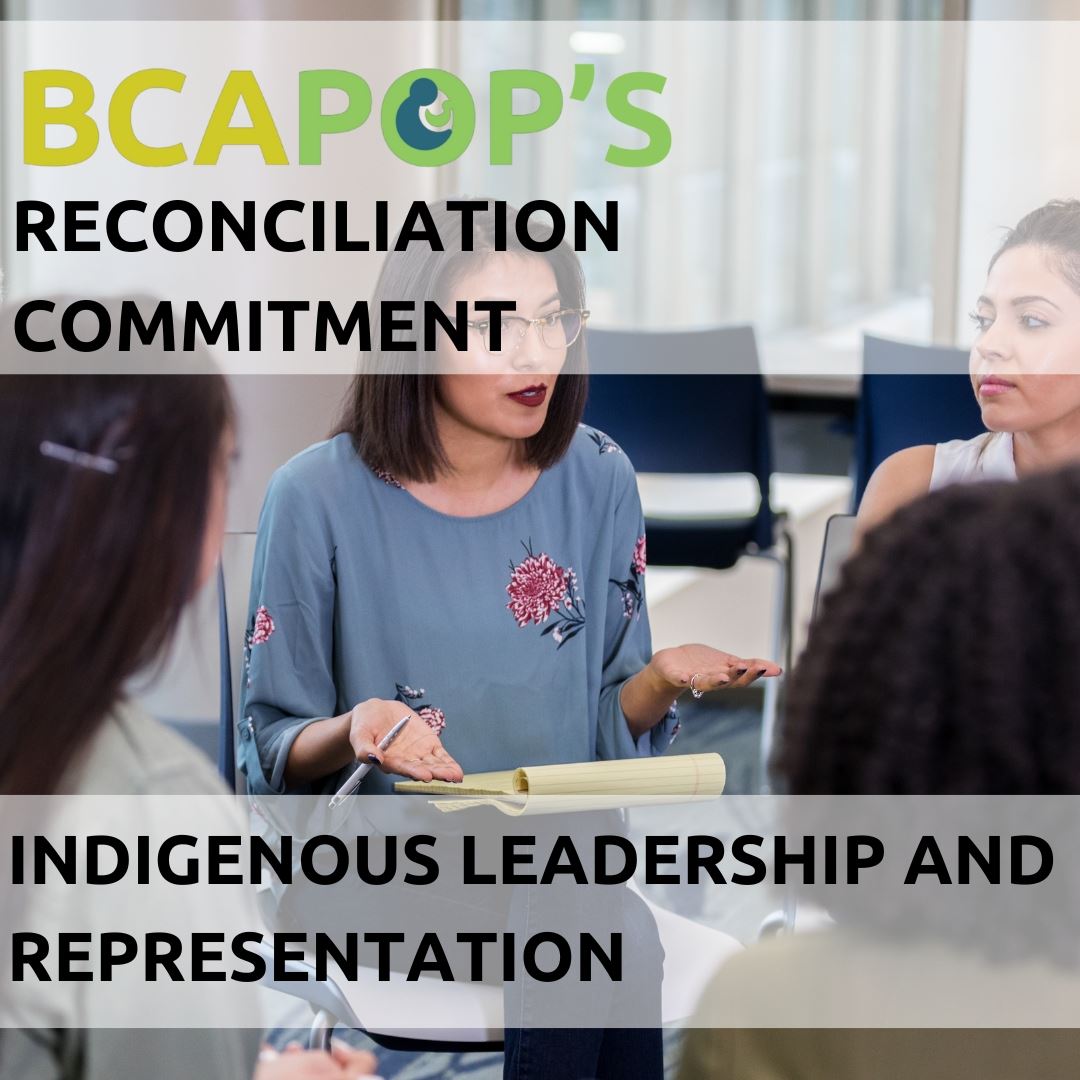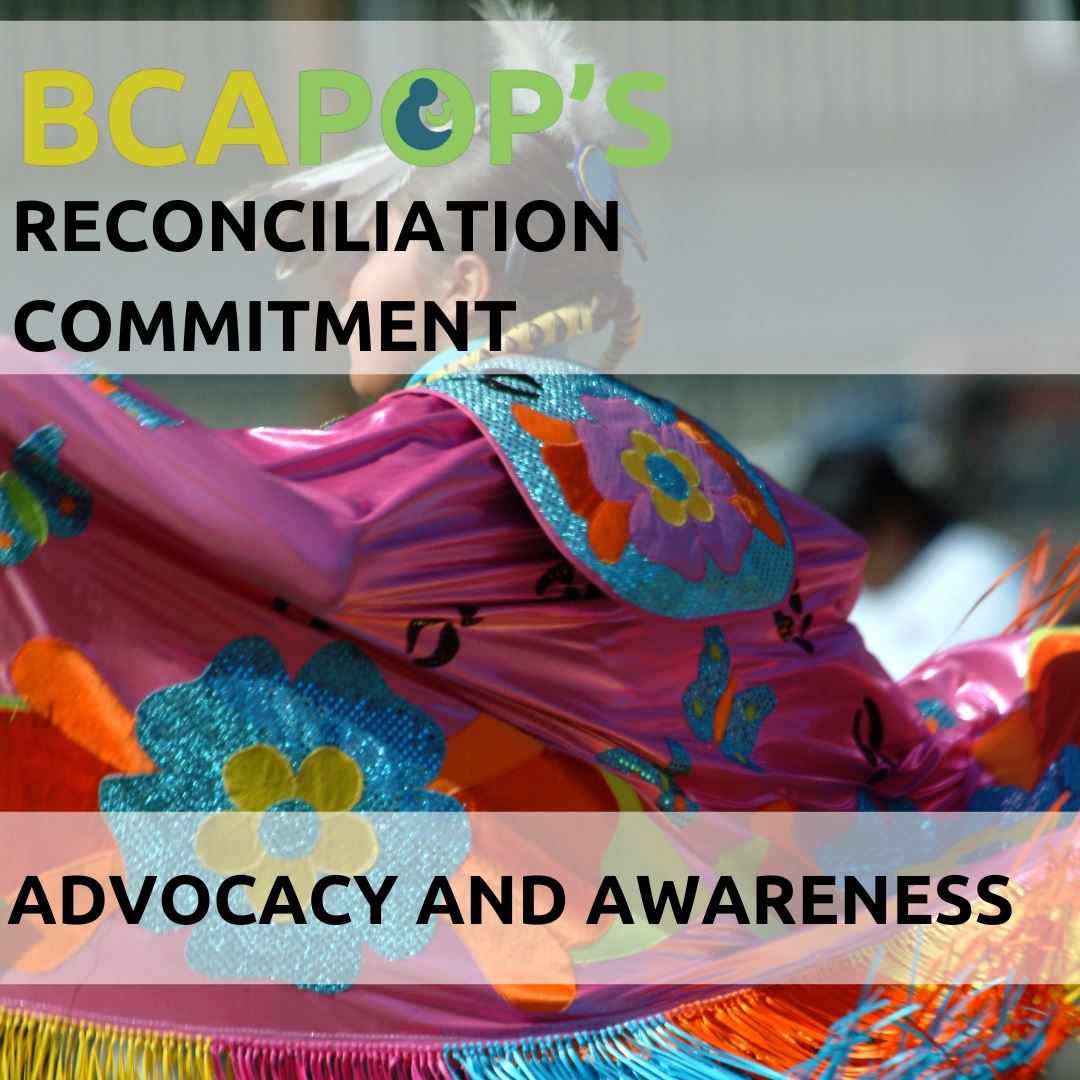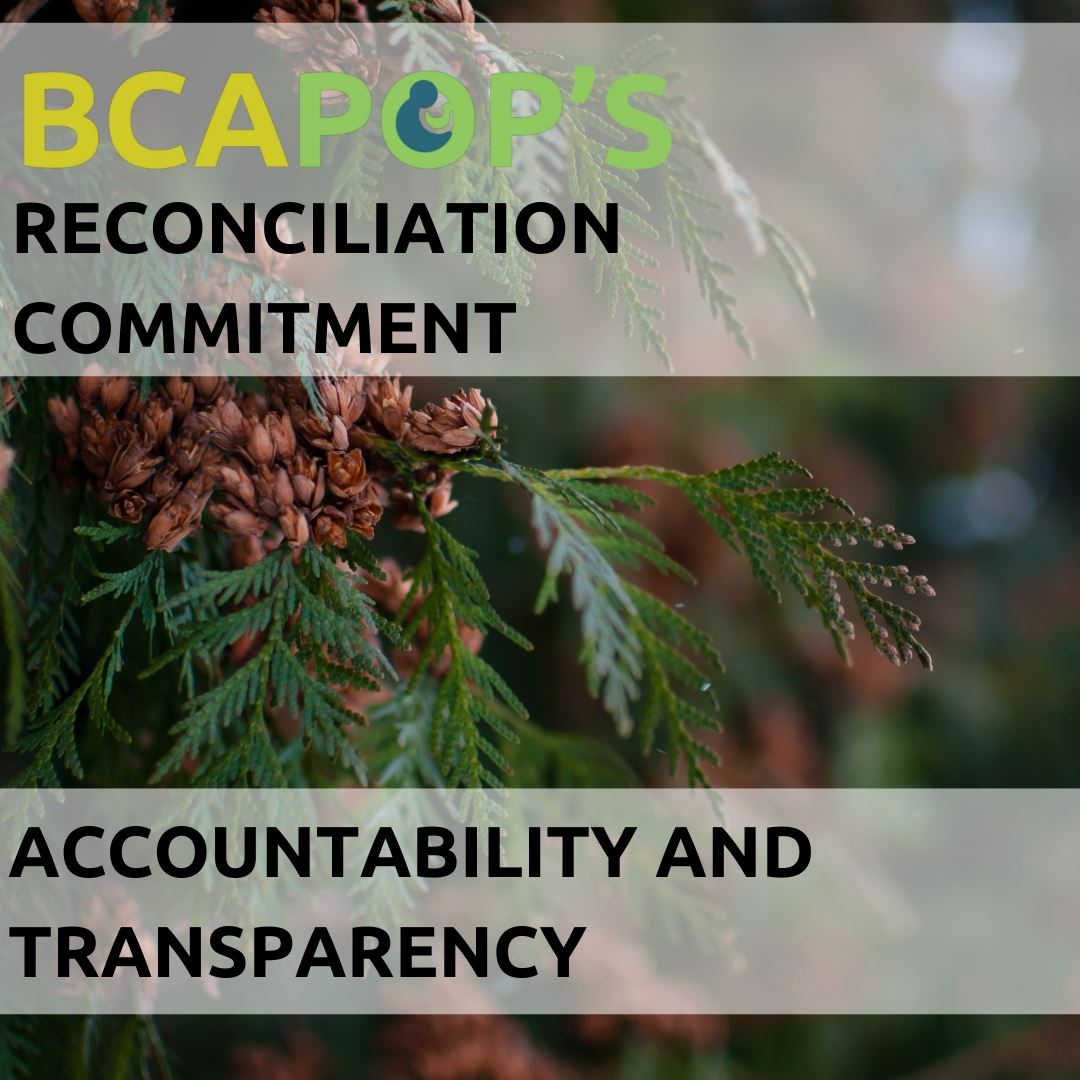BCAPOP's Reconciliation Commitment |
BCAPOP acknowledges and recognizes the historical injustices, traumas, racism, and systemic discrimination endured by Indigenous Peoples on their traditional and ancestral lands. We understand that these legacies exist, and colonization continues to impact the lives of Indigenous families and communities in consequential ways. In the spirit of reconciliation, we commit ourselves to fostering a relationship of trust, respect, and collaboration with Indigenous Peoples in what is now known as British Columbia.
Our commitment to reconciliation is rooted in understanding truth and knowing that we must actively participate in restructuring the colonial structures that have marginalized and oppressed Indigenous communities. It is with humility that we realize our organization has perpetuated these systems in the past and still currently benefits from them. We respectfully recognize that we have the ability and are dedicated to eradicating these imbalances.
We strive to/for: |
| LISTEN AND LEARNIndigenous peoples have the right to self-determination.1 We will actively listen to the voices and experiences of Indigenous Peoples, recognizing that there are distinctions amongst their traditional Nations, Territories and communities. We respect Indigenous knowledge and their rights to maintain, control, protect and develop their intellectual property of cultural heritage, traditional knowledge, methods, and cultural expressions. We will continually seek opportunities to educate ourselves and our BCAPOP members to actively hear truth and learn about the history of Indigenous Peoples in Canada and the ongoing impacts of colonization. |
| INDIGENOUS CULTURAL SAFETY & HUMILITYCultural safety is an outcome based on respectful engagement that recognizes and strives to address power imbalances inherent in the health care system. It results in an environment free of racism and discrimination, where people feel safe when receiving health care.2 We will actively try to practice cultural humility through self-reflection and humbly acknowledge ourselves as learners to increase our own understandings of others’ experiences. We will work towards creating an environment that is culturally safe, practices culturally humility, and is inclusive for Indigenous participants, BCAPOP members, partners, and staff. This includes ensuring that our policies, procedures, and practices respect and accommodate cultural beliefs and practices. |
| COLLABORATION AND PARTNERSHIPWe will continue to seek, establish, and maintain meaningful partnerships with Indigenous communities, organizations, and Indigenous Elders; valuing their input and leadership in shaping the services and programs we provide. We will collaborate in the spirit of reciprocity to ensure that projects, initiatives, and policies that attempt to promote the well-being of Indigenous perinatal health, families, and communities are appropriate. We will aim to respond to the call to justice from MMIWIG: Learn about Indigenous principles of relationship specific to those Nations or communities in your local area and work, and put them into practice in all of your relationships with Indigenous Peoples.3 |
| INDIGENOUS LEADERSHIP AND REPRESENTATIONWe recognize and uphold the rights of Indigenous peoples to represent themselves and will actively promote and support the participation of Indigenous individuals in roles within our organization and in the programs that we provide, support, or facilitate. We also value and recognize the importance of ensuring Indigenous representation in decision-making processes and aim to foster opportunities for Indigenous voices to be heard and valued. |
| ADVOCACY AND AWARENESSWe commit to being advocates for Indigenous rights; particularly in perinatal practices, family and community preservation, and self-governance. We will continue to raise awareness for the ongoing impacts of colonization, oppression, and experiences of racism in health and social service systems. We will continue to learn about allyship to develop empathy and understanding of Indigenous Peoples’ barriers and challenges both historically and currently. Through allyship we will support Indigenous empowerment in breaking down those barriers. |
| ACCOUNTABILITY AND TRANSPARENCYWe hold ourselves accountable to the commitments made in this statement and realize that this is an ongoing journey that will require the regular review our progress in the action we take towards the recommendations outlined in the Truth and Reconciliation Commission of Canada: Calls to Action.4 We will begin with reviewing the Calls under Health, #18-24 to include in our strategic plan, create deliverables to meet selected recommendations, and evaluate our outcomes annually. |
BCAPOP recognizes that this is a living document and continuous journey with imperfect decisions that we may make, but we aim to understand, learn, and improve from our past mistakes. We aim for a healthier future built on respect, transparency, and collaboration. We would like to express our gratitude to those who supported us in the development of this commitment statement and provided their valuable feedback and reflective insight to guide us on this path towards reconciliation.
For additional reading and reflection, we recommend the following documents to help increase your understanding and truth.
References:
|
